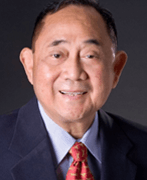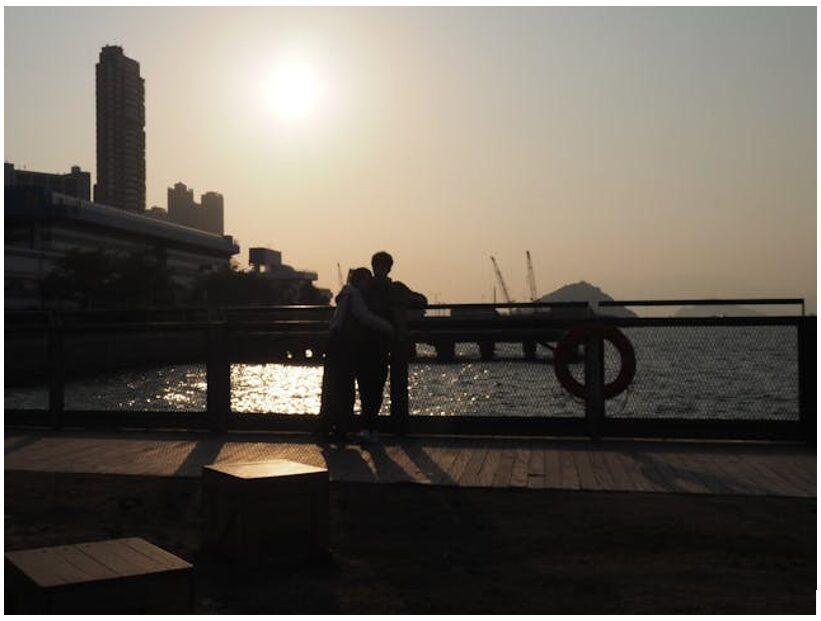(Part 1 of 3)
*Remarks of Hon. Jose de Venecia – Former Speaker, Philippine House of Representatives; Founding Chairman and Chairman of Standing Committee, International Conference of Asian Political Parties (ICAPP); Co-Founder, Asian Parliamentary Assembly (APA); Chairman, International Association of Parliamentarians for Peace (IAPP); Special Envoy of the President to the Asia-Pacific Economic Cooperation (APEC) and for Intercultural Dialogue at the ICAPP Special Conference on the Silk Road last February 1-4, 2018; Tehran, Iran.
Excellencies, friends and colleagues:
On behalf of ICAPP, the International Conference of Asian Political Parties, let me thank and welcome you all, delegates and observers to this ICAPP Special Conference on the Silk Road here in the historic city of Tehran.
We are pleased and honored by the support of Iran’s great political leaders—Their Excellencies Supreme Leader Ayatollah Ali Khamenei, President Hassan Rouhani, First Vice President Eshaq Jahangiri, Speaker of Parliament Ali Larijani, Foreign Minister Mohammad Javad Zarif, Petroleum Minister Bijan Namdar Zangeneh, Minister of Industry, Mines and Business Mohammad Shariatmadari, Senior Foreign Policy Adviser to the Leader of the Islamic Revolution Ali Akbar Velayati, Tehran Mayor Mohammad-Ali Najafi—and other distinguished officials of the Iranian Government.
Let me also greet our host, the Islamic Motalefeh Party, represented in the ICAPP Standing Committee by our dear friend and colleague, Chairman of the Organizing Committee, and co-founder of ICAPP—former Vice President Hassan Ghafoori Fard—the Islamic Labour Party, which is also a member of the ICAPP Standing Committee, and the political parties of Iran
We thank the Islamic Motalefeh Party, with the support of the Iranian Government, for sending invitations to 100 principal political parties in 39 countries in the Asian region which have keen interest and concerns on the Silk Road, as well as political parties and organizations from Latin America, Africa, and Europe—the Permanent Conference of Political Parties in Latin America and the Caribbean (COPPPAL), the Council of African Political Parties (CAPP), the European People’s Party (EPP), the Progressive Alliance of Socialists and Democrats (S&D), the European Conservatives and Reformists Group (ECR), and the Alliance of Liberals and Democrats for Europe (ALDE).
We take note of the recent establishment of the Asia-Europe Political Forum (AEPF), which seeks to promote closer cooperation between ICAPP’s Asian political parties and the various political parties in Europe, in addition to our close ties with COPPPPAL and CAPP.
Persia: One of the greatest and oldest civilizations in the world
We are happy to convene here in this storied land, which is one of the oldest civilizations in the world.
Persia, as Iran was known before 1935, was one of the greatest empires of the ancient world, dating back around 7,000 B.C., or more than 5,000 years ago.
Historians and Vikipedia tell us that the Persian Empire ruled from the Balkans to North Africa to Central Asia, spanning three continents, from its seat of power in Persepolis. It was the largest empire, the first world empire. And was the only civilization in all of history to connect over 40% of the global population, accounting for approximately 49.4 million of the world’s 112.4 million people in around 480 B.C.
Iran became an Islamic Republic in 1979, following the Iranian Revolution, also known as the Islamic Revolution, which overthrew the monarchy and clerics assumed political control.
Seeing the new Iran at first-hand
The epochal events of February 1979 have made Iran a unique political power—one with spiritual and moral authority that extends well beyond its secular frontiers.
We had the privilege of seeing the new Iran at first-hand.
For two days before the General Assembly of the Association of Asian Parliaments for Peace (AAPP), now renamed the Asian Parliamentary Assembly (APA), in Tehran last November 2006, we were official guests of the Iranian Government, hence we were able to consult with Iran’s highest political leaders on ways and means of engaging the Iranian State in the global community’s effort then to seek ways of helping ease the multiple Middle East crises—in Afghanistan, Iraq, Lebanon and Palestine.
We met President Mahmoud Ahmadinejad, Speaker of Parliament Haddad Adel, former Speaker of Parliament Nategh Nouri, principal adviser to Iran’s Spiritual Leader Ali Khameini; then Foreign Minister Manouchehr Mottaki; and our dear friend, the great former President Hashemi Rafsanjani, who recently passed away.
We earlier had the privilege of successful visits to Manila of then President Rafsanjani, and followed later by Speaker Nategh Nouri, which advanced political, economic, and cultural relations between the Philippines and Iran.
We found the Iranian leaders proud of their country’s enhanced importance in the Middle East and in the world. They were even more proud that the European, American, Asian, Latin American, and African powers were beginning to acknowledge the reality of Iran’s rising power and influence.
They were fully aware of their own need for Iran to exert its influence on the side of peace in the Middle East.
We came away from our meetings with Iran’s political leaders convinced that a modus vivendi could be reached between Tehran, the European, American, and Asian leaders—and that Iran could help shape the then processes of reconciliation between the religious and ethnic communities in Afghanistan, Iraq, Lebanon and Palestine.
To this day, we believe that Iran can and must play a crucial role in bringing about peace, security and development in the Middle East and the global community.
Support for Iran Nuclear Deal
On the Iran nuclear deal, we in ICAPP reiterate our support to the important and vital agreement signed by Iran and a group of world powers—the U.S., the United Kingdom, Russia, France, China, and Germany—in 2015.
According to the European Union, which helped facilitate the Iran nuclear talks, “the International Atomic Energy Agency has verified 8 times that Iran is implementing all its nuclear related commitments following a comprehensive and strict monitoring.”
The Deal—the Joint Comprehensive Plan of Action (JCPOA)—which is the culmination of 12 years of long drawn-out negotiations, strengthens cooperation and is critical for the security of the region.
The Iranian nuclear deal has ushered in a new chapter of political and economic engagement with Iran, which, we believe, will benefit the Iranian people, the region, and the global community.\
Praise for the Iranian leadership, calm and sobriety in resolving street protests
We commend the Supreme Leader Ayatollah Ali Khamenei and President Hassan Rouhani for their leadership and for exercising calm and sobriety in resolving the recent demonstrations in some cities in Iran.
In the midst of protests, which others feared might result in chaos and violence, President Rouhani’s wise and moderate leadership prevented the escalation of street tensions and expeditiously brought back normalcy in the country.
Indeed, we laud the collective Iranian leadership for recognizing the concerns of protesters and for upholding the right of the Iranian people to bring their grievances and aspirations.
Iran’s key role in the 21st Century Silk Road
Excellencies, friends: We are gathered here to underscore the role of political parties and civil society organizations in generating economic, trade, political and cultural connectivity and people-to-people bonds with the “Silk Road Spirit.”
Iran, as we know, played a vital and actual role in the ancient Silk Road, connecting the East and the West, serving as the main hub for the international trade and exchange of various cultures. Iran today is also expected to play a strategic role in the new Silk Road, by connecting and developing keen overall ties with the other regions.
Indeed, it gives us great pleasure to be in the great capital of Iran once more to share our views on two related issues that are of historical importance to us Asians in this Asian century.
These are regional development and regional security.
In our part of the world, they are two vital strands of geopolitics that are interlocked permanently, for Asians cannot have a full flowering of their national economies without achieving between them a relationship of good-neighborliness based on cooperation, trust and above all, common interests.
China’s rebuilding of the Silk Road
To some extent, China’s historic revival and expansion of the ancient Silk Road has often been compared with the Marshall Plan, the great U.S. initiative that rebuilt Western Europe from the ashes of World War II.
The Silk Road stands out on its own merits as a historic force for development and for peace.
More significantly, it is being carried out on a wide scale, involving more countries and more peoples across three continents of the world, and it is free from the politics of ideology that some claim led to the historic failures in development in the post-war era.
It is so far alone in addressing the gaps evident in emerging and developing economies, and because of this, the Silk Road initiative could be the key in unleashing 21st century economic development.
Some say it has the potential to influence and change this century, and we believe it is going to change it for the better.
For it has the potential as a constructive force that would facilitate the emergence of a model upon which our nations could enhance our collective security. (To be continued next week)







